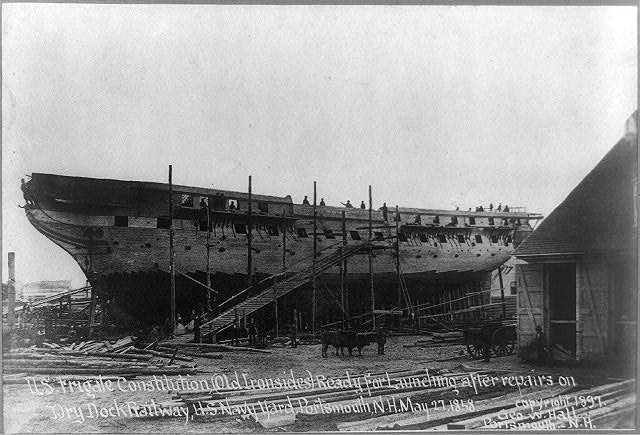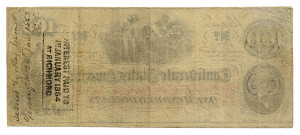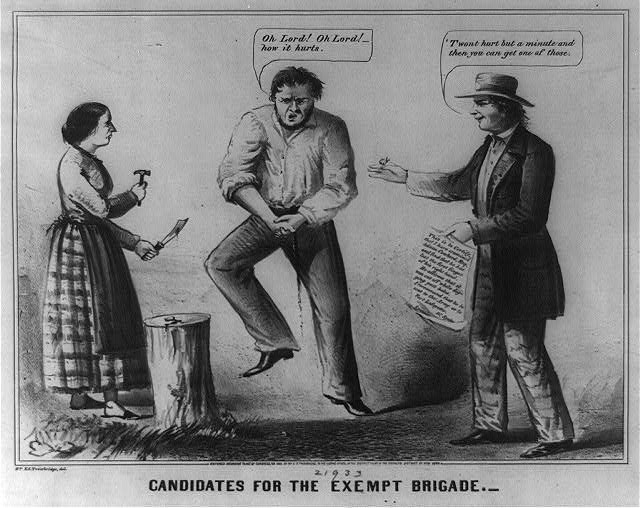experience shows they don’t work out
In last week’s post about price controls and the money supply I focused on the money printing. However, the price control part of the Richmond editorial was apparently alluding to a “maximum bill” to set price ceilings that was being considered by the Virginia state legislature 150 years ago this month. What follows is another editorial against price controls and a paragraph about a state legislator willing to resign rather than follow his constituents’ desire that he vote for the bill. The editorial points out that some Richmond citizens are threatening mob rule if the state legislature does not enact price ceilings.
From the Richmond Daily Dispatch October 19, 1863:
The maximum.
–The Knoxville (Atlanta) Register says:
“Some of the Virginia press are urging upon the Legislature to attempt to check the evil of high prices by stringent laws against extortioners, and by fixing a maximum of prices upon the necessaries of life. It is singular that these teachers of statesmen will not learn by experience. We know of no single instance, since the beginning of this war, of an attempt to restrain high prices, or to put down speculation and extortion by legislation, that has not resulted in greatly magnifying the evil. There is no way of remedying the matter, but by judicious financial measures, enhancing the value of the currency, and developing supplies to meet the demand. The well-meant efforts of the Legislature of this State last winter, and the enormous and growing prices they have failed to check, are a proof of the futility of all such legislation. We must look the gloomy prospect in the face, and do what we can by economy, self-sacrifice, and forbearance, to render the condition of things endurable until the blockade shall be broken or the war ended. If our soldiers on the battle-field pour out their life’s blood for liberty shall not we at home sacrifice the comforts, even the necessaries of life, to the very last extremity, rather than part from that inestimable boon.”
The Legislature of Virginia has an example immediately under its own observation. General Winder undertook to regulate this market, and he succeeded in breaking it up, but not in fixing the proposed prices. He nearly starved out the whole community, and the maximum he established was discontinued after a short time. Yet with this fact, and with various others before their eyes, they still persevere. Instead of taking these things into consideration — instead of laying before the people an example directly in point — the friends of the measure fly off to the most immaterial and inconsequential precedents. They tell us that hacks are regulated by law, that there are laws for the market, and laws of inspection; that some European cities have an assize of bread, and some regulate the prices of all kinds of provisions by law! Such is the trifling with which they amuse the popular ear, while they are endeavoring to drive with whip and spur through the Legislature a bill fraught with the most momentous consequences to the whole State, and more especially to this city.
We believe the first effect of this bill will be to reduce the city of Richmond to a point bordering on famine. We are justified in believing so by what has already happened in a parallel case, to which we have already alluded. There is already a great scarcity of some of the necessaries of life in this market.–Flour can scarcely be bought at all. It is only necessary to pass this bill in order to cut it off entirely. We are even threatened with mob violence if this bill should not pass. A Senator in addressing the Senate the other day said “he had been informed that unless something was done mob law would prevail in Richmond before many months.”–This appeal to the fears of men sitting as Legislators under an oath we hope will be disregarded. If it be not, there is an end of the Government of Virginia. If the mob can have what laws they please passed, by threatening violence if they be not passed, then the mob is the Government, and we are precisely in the condition of France during the reign of terror. But we do not believe that threats of this kind will have the desired effect. We have a firm Executive, who will not suffer the laws to be trampled on with impunity.
From the same issue October 19, 1863:
Resignation offered.
–Wyndham Robertson, Esq., one of the representatives of the city of Richmond in the House of Delegates of Virginia, has tendered his resignation, because of the instructions given him by two public meetings to vote for the maximum bill now pending. The resignation has not yet been accepted.
Wyndham Robertson served a second time in the Virginia legislature from 1859-1865. He was a Unionist who tried to prevent his state’s secession after Abraham Lincoln’s election. However, “on January 7, 1861, he presented a resolution known as the Anti-Coercion Resolution, which rejected secession, but stated that if the Federal government used coercion against the seceded states, Virginia would fight, which was duly adopted.” Lincoln’s call for troops after Fort Sumter was seen as coercion, and Robertson began to work to defend his state.
After the war Mr. Robertson, a descendent of Pocahontas, published a book that traced her family tree.

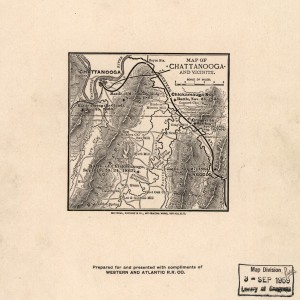
![Jefferson Davis, half-length portrait, facing right] (between 1850 and 1870; LOC: LC-USZC4-11370)](https://www.bluegrayreview.com/wp-content/uploads/2013/10/3g11370r-225x300.jpg)
![Civil War envelope showing American flags, eagle with laurel branches, and shield bearing message "Union and liberty" (in[cinnati] : Published by Jas. Gates, [between 1861 and 1865]; LOC: LC-DIG-ppmsca-31703)](https://www.bluegrayreview.com/wp-content/uploads/2013/10/31703r.jpg)
![[Bealeton, Virginia?]. John Henry, servant, at headquarters, 3d Army Corps, Army of the Potomac (1863 Oct; LOC: LC-DIG-cwpb-03756)](https://www.bluegrayreview.com/wp-content/uploads/2013/10/03756r.jpg)
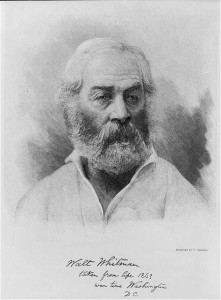
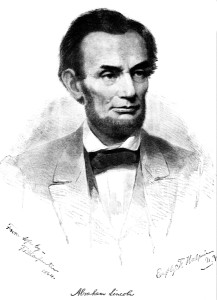
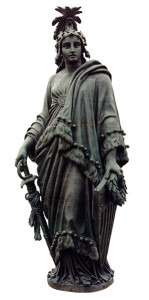
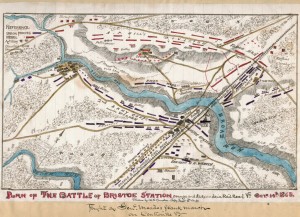
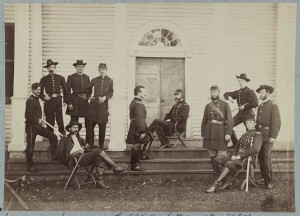
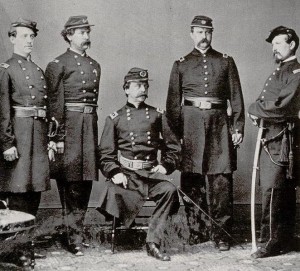
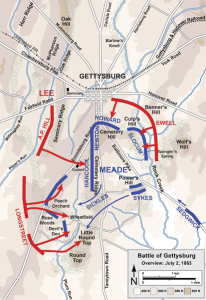
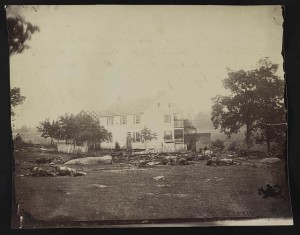
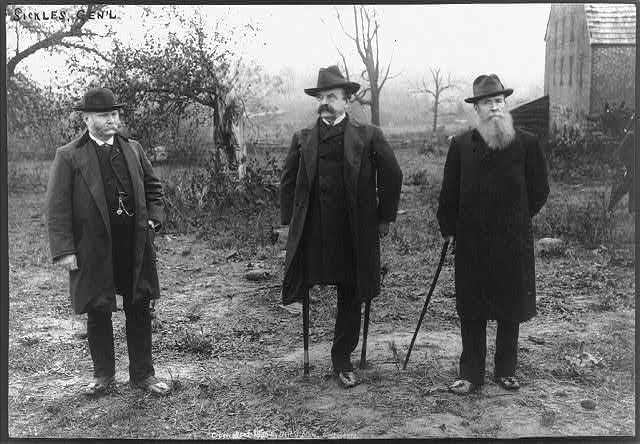
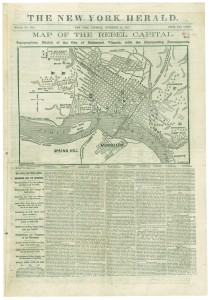
![Confederate States of America loan - seven per cent, February 20th 1863 - authorized by the Act of Congress C.S.A. of February 20th 1863 ( Richmond, Va. : Archer & Daly, [1863]; LOC: LC-USZ62-32897)](https://www.bluegrayreview.com/wp-content/uploads/2013/10/04277r-250x300.jpg)
